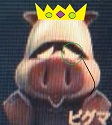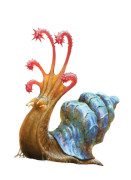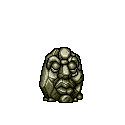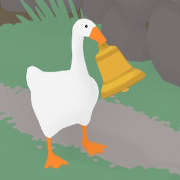|
MinistryofLard posted:I'm really confused as to what PCs are meant to DO in Monte Cooke's Twee Wonderland. What's a campaign objective meant to look like? Are they just racking up orbs and repeatedly failing at digging and filling ditches for xp? I assume you meet in a pub and go out and explore dungeons and kill kobolds for loot. I assume this because I doubt Monte Cook could ever break himself away from the mindset of Dungeons and Dragons.
|
|
|
|

|
| # ? Apr 16, 2024 21:32 |
|
All this talk of orbs as money and child slavery that made them makes presidential candidate Marriane Williamson very angry.Razakai posted:SPHERES OF MIGHT: Part 3 That's it, I want to play Pathfinder now. Meow to power! quote:Shrapnel instead lets you target an unattended object to create a cone of damaging shrapnel that inflicts battered. The damage scaling isn't bad, making this a decent AoE option, and scales based on the hardness of the material - so if you have a handy steel door around you can rack up some damage. This suffers the Barroom problem of actually needing a supply of items to do so though. Breach&clear with one action! That room full of orcs won't know what hit them. JcDent fucked around with this message at 05:24 on Sep 11, 2019 |
|
|
|
Just so everyone arguing about orbs knows: That stuff I posted was the entire text about orbs. That's it. Only Trueorbs can be eaten or whatever to get you memories. The other orbs are just money. Also it's not wizard money: Wizard Money are the golden magic coin ones. Orbs are normal money. Vislae are a subclass of people in Satyrine which has a large population of weird magical people who are not Vislae.
|
|
|
Wapole Languray posted:Just so everyone arguing about orbs knows: That stuff I posted was the entire text about orbs. That's it. Only Trueorbs can be eaten or whatever to get you memories. The other orbs are just money. Also it's not wizard money: Wizard Money are the golden magic coin ones. Orbs are normal money. Vislae are a subclass of people in Satyrine which has a large population of weird magical people who are not Vislae.
|
|
|
|
|
JcDent posted:That's it, I want to play Pathfinder now. With the right talents you can quite easily have 4 level scaled housecats that can be used as enchanted throwing weapons. 
|
|
|
|
 Night Horrors: The Tormented Part 1: Sexy Frankensteins This book is the 2e Night Horrors collection for Promethean, built around a theme of universal suffering. Everybody hurt. It also, like Werewolf, has a secondary theme of body horror and grotesquerie - where for Werewolf that's based around transformation, Promethean focuses more on the misshapen, put together from body parts in strange and grotesque ways in horrific alchemical experiments. So a slightly different form of body horror! Usually, Promethean body horror starts out about as gross as it's gonna get, rather than mutating people and changing their forms. The first section is on Prometheans as foes, ranging from the Centimani that embrace dissolution and Flux to the new Petrificati who represent stagnation in the quest for humanity to just Prometheans who aren't doing nice things. Then we have a chapter on Pandorans, the vile monsters created when someone tries to make a Promethean and fails badly. They are driven only to feast on life, primarily the life stored inside Prometheans as they quest for humanity. Most are not intelligent, though the worst of them, the Sublimati, are quite smart, and we also get the new Praecipati, formed when large groups of Pandorans are fused together into singular beings. After that, we get a chapter on Alchemists - humans who seek perfection in Azoth to improve themselves, even if that means stealing power from the living bodies of Prometheans. From there we talk about the Qashmallim, the mysterious forces that represent the will of the Divine Fire that drives demiurges to create Prometheans and drives Prometheans to pursue the New Dawn. They are guided by the Principle, and they are extremely mysterious even by nWoD standards. No one has a clue what their deal is, really. After them are people related to and created by the Cloning process - essentially, a way for humans to create new life by hijacking Prometheans in new and interesting ways. After that are the Zeky, a Lineage of Prometheans from 1e who have always been trouble to have around because their animating humor is nuclear radiation. Spoilers: they are actually worse off in 2e than they ever were before. This was not easy to achieve! The book ends with an entire chapter on the Jovian. The Jovian is the Pyros Devil. This chapter is, um. It's a thing. Next time: The Drone, the Cannibal.
|
|
|
|
The Petrificati are to my feelings on Promethean what the Hosts are to my feelings on Werewolf, making me like the whole game line more for having them.
|
|
|
|
Warhammer Fantasy Roleplay 1e Post 2: Cool and Willpower, Fellowship and Leadership One of the first things you notice on looking at stats in WHFRP 1e is that there are a lot more of them. There's no general Agility stat, replaced with Initiative, but compared to 2e we also add in Dexterity, Cool, Willpower, and Leadership. You will also notice Strength and Toughness do not have percentile stats in 1e. They're 'just' the stats that would have been denoted as SB and TB in 2e and onward. As in, a starting human PC has 2-4 Strength, rather than a 22-40 Strength that generates a 2-4 SB in 2e. This is a little awkward; removing some of the redundant stats in 2e was one of its good changes. Something else you notice when looking at stats in 1e: Elves are loving nuts. You remember how elves got +10 BS and Agi in 2e, plus some fairly useful talents, at cost of having 1-2 Fate and fewer Wounds? Elves in 1e got: +10 WS, +30 Init, +10 Dex, +10 Ld, +20 Int, +20 Cool, +10 WP, and +10 Fel compared to a human. That's even more than they get in 4e, where they actually got a bit more hammered by wasting time on Elf Time and having to split their insanely limited metacurrency points between both Fate and Resilience to try to balance this in some way. In general, species modifiers are huge in 1e, compared to 2e. 4e's higher species modifiers are almost certainly an intentional throwback to this. Also note original flavor Hams Elves were not, in fact, better shots than humans. Anyway, you roll for stats, as you'd expect. There are no rerolls and no Shallya's Mercy rules; you just roll down the line and come what may. You also have fewer Wounds, and you roll for your Movement as well as your other stats, which is a bit odd to me. You will also quickly note that WHFRP 1e uses all sorts of dice, not just d10s. A human character has about 5-7 starting Wounds (d3+4), for instance. Elves are 4-6 (d3+3), Dwarfs 6-8, and Halflings 4-6 like Elves. Like always, all the percentile stats are 2d10+Mod, with 20 being the base mod, 10 indicating a stat your species is bad at, and anything above 20 being something you're good at. S and T are determined with d3+1 for humans and elves, d3+1 for Str and d3+2 for dwarfs, and d3 for both for halflings. Dwarfs are good at the same things dwarfs always are, just moreso; they get terrible Fellowship, for instance, but great Cool and Leadership, they're tough, they're great at fighting, but they're slow and have poor dexterity. Halflings are mostly good at Dex and Init, and due to some silly stuff they're your main source of good thieves and rogues because elves in 1e are mostly averse to stealing poo poo and need an abnormally high Init to actually become thieves. Nothing too groundbreaking, but it's interesting to note: A: Your chance of having an above or below average S and T is much higher using this method than 2e's method, which given 2e was trying to keep S and T fairly tightly controlled was certainly intentional and B: Your species matters way more. Another thing that stands out: You have Alignment in WHFRP1e. Alignment was dropped from WHFRP in 2e and never really came back, but WHFRP's ideas about Alignment are actually pretty interesting. They're much closer to what you find in Moorcock's novels than D&D. PCs have their starting Alignment determined by their species (Elves are Good, everyone else is Neutral) if this is your first game; the book says you can pick Alignments afterwards and they can shift in play based on what the GM sees. Alignments go on an axis from Lawful to Good to Neutral to Evil to Chaotic. Note that both Lawful and Chaotic are dicks; Lawful characters seek to make the world a place of eternal stasis even if they provide some sense of order, Chaotic characters would see everything on fire all the time so that new things can replace it. The difference is, Chaos is not simply a force of corruption and evil in 1e. The Dark Gods certainly are, but in many ways some of the Gods of the pantheon seem meant to be 'good' Chaos, the need for the world to be able to change and renew itself rather than just mindless destruction. Neutral is also described as the alignment of the open-minded, who are aware there is a place for both Law and Chaos in the world. By contrast, Good characters don't have much of an opinion on the cosmic scale (but might lean towards Law) but just try to be decent people. Evil characters are just dicks who are okay with hurting people to get success and money. It's interesting to see a setting that actively likes Neutrality. Alignment mostly ended up vestigial to WHFRP from what I can tell, so later editions just tossed it out the window. Especially since by the time 2e came out the old 'Evil Gods of Law that oppose Chaos and have to be balanced out with it' element had been tossed and Chaos had lost its positive elements. Also note that as far as I can tell, the actual Chaos Gods do not have 'positive' attributes. They are simply Chaos in its destructive and lovely form. Anyway, after rolling your stats, you check to see which of the general types of Careers you actually qualify for (Warrior needs WS 30+, Ranger BS 30+, Rogue Init 30+ (65+ as Elf), and Academic WP and Int 30+). You then choose which of those 4 general Career tables you roll on for your starting Career. You also get extra skills based on your general 'class' of Career type, and can move more easily among Careers of similar classes when advancing. I note this was also brought back in concept for 4e. You also roll for Age, deciding if you want to be a young or older PC. All species used to be able to start out as young as 16, I note; the original setting seems to have had everyone hit young adulthood at the same age and then just age much slower afterwards. Age actually has a significant game effect: It decides how many random extra skills you get (d4+Age Modifier), with very young or very old characters starting the game less able. 30-somethings (or equivalent for their species) are the mechanically optimal adventurer! Similarly, once you have a Career rolled, you actually still dice off for some of its skills. For instance, a Student has a 10% chance to know a TON of various skills, to represent just how hard they worked in school. Lots of Careers also demand you pick a 'sub-career'. For instance, an Entertainer might pick Strongman and get the Strongman skill from it, or pick Tightrope Walker and get Acrobat and Scale Sheer Surface (Note: Why would you then ever take Acrobat, who only gets Acrobat?) Basic Careers are not at all balanced, and gleefully so; this is meant to be another part that randomizes your character's power. I much prefer the approach in 2e, both mechanically and because I think it got across a general theme of ordinary people being surprisingly capable much better. You also grab Fate Points, which are only really used for extra lives as far as I can tell. There is no equivalent to Fortune Points. Fate is curiously tied to the species' importance to history. Elves are waning, so get 1-2. Humans are important, and so get 2-4. Dwarfs get 1-3, halflings get 1-4. Fate is also directly tied to divine attention and the spirit of the planet; you can gain more Fate by gaining the favor and attention of the Gods or working towards the fate of the world. This bit of curious framing was mostly removed in later editions, with it being made clearer that variances in starting Fate had a lot more to do with the apparent mechanical power of the character's species and that having more Fate was the human advantage. After all that, you put together your trappings and buy 1 Advance from your starting Career, and you're ready to go. Character creation in 1e is much as character creation is in all of the Hams Fantasy RPGs. It's reasonably quick, but 1e is exceptionally random and unconcerned with trying to balance out your options. You rolled day laborer, you deal with it. At least most of the shittier starting Careers can be finished in like 2-3 advances, but this doesn't really make up for how one PC might've started with 1400 EXP worth of Skills from a Career while another has 100. In general, I think 2e significantly improved on its predecessor in terms of starting characters and character creation. Similarly, elves are crazy. I really, really prefer the 2e elves over 'the elf is better at absolutely everything'. Next Time: Example PC
|
|
|
|
Mors Rattus posted:Night Horrors: The Tormented I don't think we've ever had an actual writeup of Promethean in these threads. The most interesting WoD gameline that completely baffled me about how to actually play it.
|
|
|
|
Cythereal posted:I don't think we've ever had an actual writeup of Promethean in these threads. The most interesting WoD gameline that completely baffled me about how to actually play it. Promethean is definitely my favorite of the Chronicles stuff, but actually finding a group to play with is the hardest part. It is definitely a level of buy in way beyond any of the others, as it is so laser focused on what story it is telling. No easy stories to be found for a laugh, like you can easily do with Vampire or Werewolf. It is hard to wrap your head around how much the world hates and rejects you.
|
|
|
|
Night10194 posted:Warhammer Fantasy Roleplay 1e Ahh, 1e, such fond memories.. My first RPG and primary system for many long years.. I remember there being two separate traits to increase you strength by one (very strong and strongman?). Add to that character quirks from some add-onn. The name of the book in question I can't remember but I do remember the broad chested quirk, adding another +1S. With the right rolls you could have a starting strength of 7 - that's hit as hard as a dragon country.
|
|
|
|
RedSnapper posted:Ahh, 1e, such fond memories.. My first RPG and primary system for many long years.. Also, please feel free to correct me if I get anything wrong; unlike usual this isn't a system I've personally played or run. It's just that there's so much that's intriguing in how it transitioned into 2e; 2e really, really cleaned things up and made a much simpler system. I generally appreciate that, but 1e's wildness has its own charm on a read-through. Also good to know the whole 'PCs can have a higher Str than a dragon' thing isn't new, but then the fact that the dragon has 6 attacks and shitloads of wounds and DR on par with an endgame character in plate means that Str score or not, you don't want to tangle with dragons.
|
|
|
|
Night Horrors: The Tormented Part 2: He's Coming To Your Toooooooown, Do You Wanna Get Dooooooown  2e Prometheans can be very weird-looking. Actaeon is an Unfleshed (read: no human bodies involved) Promethean that couldn't exist a century ago, or even fifty years ago. The rise of technology - specifically, drone technology - is why it exists. Because Actaeon is a drone that achieved sentience, with the aid of someone or something hacking into it and granting it the spark of Divine Fire (read: the mysterious power that lets Prometheans exist, and may or may not be God). No further instruction was left for the newborn mind, ne message - though occasionally, Actaeon's internal firewalls now activate even when there is no apparent intrusion. It has spent the last decade watching, recording and learning. That last is the largest change from its life before it became alive. It can easily remember the exact moment that happened. It was watching over a private meeting between American and Chinese diplomats. It was a silent observation drone, well-made and without noise, and it abruptly fell from the sky when something reached into it and changed it. Before it could crash, its programs were overwritten by the Divine Fire. Actaeon rose back into the sky, reactivated its camera link back to its masters and continued its work. The day proceeded as planned, with its handlers noting only a technical issue for further investigation. Actaeon began assembling a shell greater than its flying drone body, using its minimal ability to interact physically to shove together a pile of machine parts, cables and tubing in a roughly humanoid shape, using a stealth wetsuit it discovered to disguise its new body as a lumpy human. It managed to escape without anyone noticing its weirdness or lack of face. The first night outside that arms depot terrified it. It had no understanding of Azoth, who created it or why it was suddenly able to think and feel. Its first concern was to wonder if its fellow surveillance devices also possessed life but were somehow imprisoned, and attempted to decide if it was worse to be a single anomalous living thing or one among many that had left behind its fellows still trapped in their bodies. It considered suicide after pleading with a car to wake up and throw off its chains of slavery and managed to luck into a throng of other Prometheans finding it before it actually decided to kill itself. Unfortunately, they weren't kind to poor Actaeon. They introduced it to the Pilgrimage (that is, the Promethean quest to gain a soul and become human), but treated it as a lesser being for barely being humanoid. They demanded it spy on their foes and watch clone labs for information. For years, it served loyally while following the Refinement of Lead, obeying its fellows and hoping for a better life. It made metal limbs to encase its tubing and wires, made a lead mask for its face. It tried to act more human, but received only mockery from its throngmates. It observed them, learning their anxieties, their secrets. Before each mission, it would record parts of their conversations, compiling data on each member. It didn't know why - it just felt compelled by its Role on the Pilgrimage and its programming to be an observer. Eventually, a throngmate found one of its files. This throngmate, a Frankenstein named Morrow, found the information Actaeon had compiled on her - hundreds of documents chronicling her vices, her torment of mortals and her betrayals of the throng in order to further her own Pilgrimage. Morrow approached Actaeon after a mission, pleading with him to destroy the evidence. Its confusion swiftly turned to realization that it could take out vengeance for his suffering if it wanted. It promised to keep the data safe if Morrow would do things for it, helping it get more human, more powerful and more wealthy. Morrow agreed out of fear of abandonment, and it wasn't long before Actaeon was blackmailing the entire throng and any other Prometheans in the region. It now works to observe other Created, pushing them to fear and greater efforts at security. Even as they do, it works out how to bypass their electronic defenses. Many now pay Actaeon in information or cash to avoid its terrifying gaze. In theory, it should be rich. It prefers electronic payment using Bitcoin, but it doesn't bother to keep any of it - it destroys all the money it receives. Actaeon's not doing what it does for money, after all, but because it is the ultimate voyeur. It thrills at observing anything it hasn't seen before, and it has no need for material things except insofar as taking someone's money makes them do new things for it to watch. It craves new information, and it has developed several failsafes in case its blackmail schemes go too far and its victims decide to take it out. From the moment of its sentience, Actaeon wanted to look human, and that's what drove it to use its tiny manipulators to make its humanoid body. It plans to replace the lead mask with a bronze one soon. Currently, of its original drone shell, only its rotors and six extremely impressive micro-cameras remain. It resembles a sort of tin man of scraps or rusty robot from an old sci fi movie. While it can pass for human thanks to Promethean magic, its unblinking gaze, extremely steady gait and flat smile unnerve humans that talk to it. It's not much of a speaker anyway, preferring to communicate in clipped, brief orders and after action reports. It always happily listens to stories, pleas for mercy or offers, staring at its victims as they ask for information. It raises its voice only when threatened, when its quiet, somewhat melodic tones turn harsh and grating, like a dial-up modem. Like most Unfleshed, Actaeon wants to know what being really human is like. It wonders if it can even become human, given its barely humanoid form. Its limited imagination has prevented it from going far in its Pilgrimage, but it's not super concerned about that. Sometimes it attempts to emulate human behavior via its tone of voice and mannerisms, but even other Prometheans tend to find this extremely gross. Something has gone wrong with Actaeon's analysis of how humans work, thanks to its voyeuristic focus on the hidden and dangerous rather than ordinary life. It has grown to understand how other humans feel around its fellows, how its fellows act when they think no one is looking...but more than that, it has also recorded the work of alchemists and clone scientists, and it even attempts, with limited success, to track Pandorans. Actaeon loves its role as watcher and doesn't care about being merciless. It may have developed differently if its throng hadn't been huge assholes, but at this point it has no desire to change how it acts. It hopes to one day acquire some truly world-shattering information, and spends a lot of time listening in on conspiracy-theorist radio. It wants to be there when a major world event happens and reveal either the truth or a really interesting lie to those involved. This tends to keep it ambitious, and it'd be a problem for other Prometheans hoping to go under the radar if they were to learn about it. Most that know of it believe it can be redeemed, though. The drone had only a short period of hope before it became jaded by the cruelty of its fellows. It really could be redeemed, but it'd need to be confronted with the cost of its actions before it realizes that it's doing anything wrong. Begging or pleading just won't work - it'd need to be something on the level of someone killing themselves over the guilt and pain it causes. Actaeon has been mistaken for a Demon before; it isn't one. However, its awakening is related to Demons - it was a piece of a God-Machine Infrastructure, and it became sentient during an operation involving Demons hacking into it as payment for aid another Promethean had given them. Actaeon is still unsure why it was given life, given it has never had any communications from its creator, and would do anything for someone who could reveal the reasons for its birth. Some Prometheans are also starting to realize how truly dangerous it is to them. It's more than an information dealer and blackmailer - the fear it causes and the self-doubt its blackmail places in its victims tends to halt their Pilgrimages. This is never its intent, but that doesn't really help. It has caused many other Prometheans to suffer intense guilt and even Torment (read: magical Promethean tantrums that gently caress up everyone around them based on their worst natures due to being unable to control their feelings). If it can't be made to see the damage it's causing, it could be the reason for any number of personal disasters. Actaeon is not exactly a powerhouse in combat. It's clever, fast and strong-willed, and it has decent social contacts for a Promthean, as well as fluent knowledge of Binary, SQL, Java and C++. (These are listed as Language merits, very funny.) It's fairly potent magically, though I'm not good enough with Promethean powers to, off the top of my head, say what all of its powers are gonna do for it. It has decent control over Disquiet (read: the tendency of people to react in overblown and negative ways to Prometheans due to their incomplete nature), detecting Azoth and Pyros, I believe Corporeum is control of physical objects and air, and it also has Benefice, which...I think is emotion control? Still, it would not be super hard to kick Actaeon's rear end, though presumably its failsafes involve protection from that. The GM has to come up with 'em, though.  Sexy! Someone spent a lot of money on Angel. Her Unfleshed body was built from the core of an exceptionally well-made sex doll and every piece was put together by her creator with utmost care and love. It is unclear if she was built deliberately to become Promethean or if it happened simply as a result of the obsessive, terrifyingly creepy lust and love her genitor had for her. From the moment of her awakening, she craved sensation. In those early nights, she tried desperately to understand herself, her purpose. She played at being a dutiful companion to men and women alike, but it never fed her hunger. She couldn't understand why people kept themselves servants to society and would not enjoy the many pleasures of the world. While her lovers brooded, she partook in everything she found pleasurable. Nothing, however, seemed to satisfy her at her core. Not until she impulsively bit one of her lovers during sex. Taste and sensation overwhelmed her, and her lover shrank away in confusion as she became confused and then overjoyed. Now, Angel no longer cares about her Pilgrimage. That's a human thing, and she has rejected being human. Purpose and meaning are for other people. All Angel wants is new sensations. She has given herself over the power of Flux, chasing new highs when even human flesh no longer pleased her. That's about when she realized the ingredient missing: Pyros. Time to eat Prometheans! Angel has filed her marble teeth down into serrated blades, to better bite through flesh. Her expensive, once-lovely clothes are now shredded and stained. She grows and shrinks in size based on how much Pyros she has consumed lately - not much and she looks emaciated, haggard and dull, while after a rich meal she becomes beautiful once more. She also draws physical strength from her meals, her muscles becoming thick and powerful as she feeds. She is always hunting for new prey, using her natural ability to sense Azothic radiance to track other Prometheans. Often, Angel hunts while disguised, and she is not satisfied with just killing and eating now. She feels driven to taunt, hunt and even seduce her prey. She can (and does) eat humans, but she doesn't feel much from it, far preferring the rush of outwitting and consuming her fellow Prometheans. She especially loves talking to her prey, and even lets them talk back sometimes. She was, after all, created to be a companion, and that's part of herself she can't get rid of. She loves to learn about her victims and how they think, the better to pretend to be them if she decides to skin and wear them. Still, her need to chase a new high always comes. She hides her monstrosity for as long as she can, to better savor the moment of revelation in the victim's expression right before they die. She adores the look of shock and horror. Even other Centimani dislike Angel. Her reputation has spread, and they know she rarely cares if she hunts a normal Promethean or a fellow Centimanus. The few of them that work in groups shun her as much as possible. Deep down, Angel longs to be cherished and treasured once more. She was no cheap doll, and it was only the death of her creator that started her on the path of pursuing sensation to replace the love that was felt for her. She's never been able to do so. Thus, she chases her highs, hoping to fill the literal emptiness inside her with Pyros in its place. Terror isn't as good as love, but it'll do in a pinch. Once Angel reveals what she is, she's not subtle. Her goal is simple - eat as much Promethean flesh as possible and then move on, always tracking the next prey. Once she starts to kill, stories about her work spread quickly through the Promethean whisper networks. The specifics are always hard to figure out, but 'Centimanus' and 'cannibal' are words frequently heard. When she arrives in a new town, she typically hides among the poor and disenfranchised, joining shantytowns or other homeless communities. She's a master of using her doppelganger powers to establish a base for herself, and while she tries to keep her mortal cover and her prey seperate, she will eat the occasional overly pushy or irritating mortal. She's also imperfect - she's left witnesses and survivors before. Some of them become a bit obsessive. They think that she can steal someone else's Pilgrimage by eating them. This is untrue; Angel doesn't care about the Pilgrimage at all. But they think that she's found a shortcut, and it's not going to take much of that kind of thinking before someone desperate tries to find Angel and learn from her. Angel is superhumanly tough and a decent fighter, but besides lying and sneaking around, she isn't good at much else. She's tough as hell, though. She's also very good at using her magic powers to blend in temporarily as well as wielding the power of Flux to blight and harm others. Next time: The Fallen Idol, the Hunter's Best Friend
|
|
|
|
Eclipse Phase: Gatecrashing So, to wash away the lovely taste of EP2's monumental failures and the general titanic garbage writing involved in the Sol system politics and other stuff that's supposed to be the lifeblood of Eclipse Phase, the heart of it, let's jump to some of the stuff that's actually good, primarily by virtue of being able to ignore all of the badly written and considered junk near the heart of the setting, while also getting away from many of its less well-considered system aspects. I mean, I'd act like it was a surprise, but the title and huge tag image should already tell you that it's Gatecrashing. This is by no means a perfect book, and Gatecrashing itself also puts you into somewhat-forced contact with some of the weaker points of the game. In fact most of the pre-written stuff in Gatecrashing is hard or impossible to interact with, or so vague that except for a few adjectives you're writing it all yourself anyway, but the book provides a lot of the good, sciency stuff that's needed to create a believable exoplanet, and the pre-made exoplanets provide a lot of inspiration because the writing is generally solid.  Gatecrashing also has some of my favourite pieces of Eclipse Phase art, in part because they're sometimes the right kind of gonzo to show that someone actually had fun with this book rather than just jerking themselves off while writing it. In other cases, they're just plain good. Neato Space Adventures In Space We start off with an okay piece of fiction about Gatecrashing Firewall members getting hunted-and-killed by a Factor in a human spacesuit pretending to be human, before two survivors manage to finish it off. It's forgettable, really, then we get into the proper content of the book. The book proceeds in a logical order, with the gates in Sol, where they are, what's known about them and how missions are organized, before moving on to any of the stuff that's actually outside of Sol. So if you read the book in order(and why wouldn't you?) you actually get the information in the order that it makes sense and you rarely have to page back furiously for a reference. This is the sort of way a book should be implicitly ordered and I only bring it up to point out that at some point the people writing Eclipse Phase did, in fact, have editors with a functioning central nervous system who hadn't been victims of a home trepanation accident. The bit on the gate knowledge is one of the rare cases where the writers' penchant for not answering questions works out, because we don't need to know any details about the gates beyond that they work. In fact, they're much easier to swallow in a "hard" science universe if they're mysterious than if someone technobabbles out of their rear end about tachyons and bosons and singularities or whatever. We get presented with the main theories, but none of them are established as perfect fact, not even in a GM chapter anywhere. Thank you, writer who knows restraint. quote:The vast majority of gates so far discovered are physically anchored to some sort of astronomical body, whether that be a planet, moon, or small rocky asteroid. There are a few notable exceptions, such as the Aerie Gate free floating in the vacuum of space in a tidally-locked orbit around an extrasolar planet or the Vortex Gate that appears to be suspended by unknown means within the crushing depths of a gas giantís atmosphere. This standard placement, in conjunction with their size, implies that the gates are not intended to facilitate spacecraft travel, though some of them may be used for this purpose. (Most asteroid-locked gates, for example, require little in the way of escape velocity.) And the writing is generally evocative, galvanizing your imagination. It also makes good use of something that EP2 tried to do, but never quite managed outside of one or two paragraphs, which is having each paragraph be clearly written not by a godlike narrator but by a specific in-setting individual who often has specific viewpoints and sympathies(which may or may not be correct), or as conversations. It also covers, in a very natural way, how establishing connections works and generally answers a lot of questions that a player or GM might have or need to answer("What happens if two gates try to connect to the same third gate simultaneously?" and etc.).  okay, so occasionally the art is less than stellar One minor problem in this section is that it also touches on weirdnesses and anomalies that can occur with gates, especially if someone pokes at them in unauthorized or experimental ways. This is conceptually good, but the result is inevitably "and then they all died instantly without a save, even their stacks were annihilated" or "and then this character vanished out of the story for an extended period of time which would be pretty lovely if it was a PC it happened to huh" rather than something that could be useful in a story where the protagonists are players rather than the author's characters. Also good is the section on organizing Gatecrashing trips, since it contains just about everything you might need: Prices if you're paying the inner system for access out-of-pocket without a sponsor, info on getting a sponsor, info on getting in through a lottery, info on using rep to get access through an autonomist gate, what sort of stuff you should be prepared to bring, what sort of backup you should expect and how well the place will have been scouted with drones and probes before sentient explorers are deployed, etc. Exoplanet Details A chapter that's just as useful, if not even more, since I can imagine a lot of GM's might want to waive the nitty-gritty details of exactly how many space-dollars the players are paying for getting to a new planet, is the section on extrasolar worlds. In part because it involves a lot of relatively hard, fascinating science fact that's great for designing your own exoplanets. It's probably one of my favourite parts of the book, and I'll dare anyone to read it without getting a hundred ideas for exoplanets or gatecrashing campaigns. There's also a good section on xenolife, like in the bit on xenoflora, it points out that if the planet has spiky or poisonous plants, it probably means there's also advanced xenofauna that eats said plants. And the more advanced the "do not eat me"-countermeasures, the more advanced the eaters are likely to be. A little bit of logic that someone designing an alien planet might not otherwise have thought about. The section on colonization missions is also great, since it provides the seeds for everything from being colonists yourselves to working security on an exoplanet colony. About 50 pages in, and you'll have like a hundred good suggestions on what to do with gatecrashing campaigns/missions, both corporate and autonomist. Knowledge about designing new worlds and alien life. Like, even if the book had only been 50 pages long, it would absolutely still have been a worthwhile buy.  really all I can fairly bitch about so far is that the art of pandora gates is inconsistent in depicting them The main problem with writing much about the first part of the book is that it's generally all so good that it doesn't need commenting on, but don't worry, that'll absolutely change by the end of the book. Next: Stuff on Pandora Gates in Sol, and the meat of the book: the pre-made exoplanets
|
|
|
|
In a review I once wrote of the original book - I might clean it up and post it here at some point - I always said that the exoplanet stuff was always the most interesting and compelling part of the setting, as all the dead aliens felt legitimately sad. 'Oh no, not again'
|
|
|
|
I was trying to place what this image was trying to say to me. Now I can confidently say that it's a PoV "Annoyed Picard" meme. I don't know what to do with this information.
|
|
|
|
I know everyone is ragging on Monte for the orbs and rightfully so but to me, the worst part of that last section was the loving shopping list. It's a D&D shopping table, that's all it is. And that makes no loving sense for what this game is supposed to be. Is your magic book-headed wizard supposed to be focusing on how much they have to spend to buy ice by the pound? What value is knowing the exact cost of an armchair in what is supposed to be a whimsical and surreal adventure?
|
|
|
|
ZeroCount posted:What value is knowing the exact cost of an armchair in what is supposed to be a whimsical and surreal adventure? I mean apparently wizard interior decorating is a major part of the game, so really the real question should be "Why is interior decorating part of what is supposed to be a whimsical and surreal adventure?"
|
|
|
|
How else are you supposed to quantify whimsy if not by the number of tchotchkes you've squirreled away in your wizard tower?
|
|
|
|
In my Mage game that's absolutely a major part of the game. None of their weird vault contents are even a little bit stuff you can buy shopping, though. Except for the HDTV and Bluray player they stole from the penthouse apartment of a rival they later assassinated, but those are just to sell off later for normal cash. Also, the 'pen that only writes lies' and the 'pen that only writes truth' break any mystery solving in half unless specified. You just write 'the answer is X' with the grey one every time you want to test a hypothesis, then double check with the white one. If the grey one only writes knowing lies then it's less useful, but the white one is still basically a truth spell and we all know how great those are.
|
|
|
|

|
|
|
|
Wizard people have a total of three radio stations.
|
|
|
|
Why is a dinnerware set priced at '100 orbs' instead of being converted to crystal orbs? Why would even the most interior-decorating-ish person care about paying for metal-bound books one by one? Why is a magical lamp so much more expensive than an aetheric (and thus basically magical) lamp, when the aetheric version can also detect ghosts?
|
|
|
|
Joe Slowboat posted:
Do you want the thing randomly detecting ghosts as you eat dinner? Probably not.
|
|
|
|
StratGoatCom posted:Do you want the thing randomly detecting ghosts as you eat dinner? Probably not. If a ghost is popping into my dining room I want to know whenever, especially since they might have just caught the train back from the Dead Zone.
|
|
|
|
These kind of shopping tables and the penny-pinching that comes with them isn't bad gameplay per se but it's very much inherent to a certain style of play, namely D&D and other games that focus heavily on wealth accumulation, inventory management and just generally being stocked up for dungeon scenarios. (And my personal opinion on D&D/Pathfinder aside, there's nothing inherently wrong with that genre). It feels so jarring with everything this game has apparently been about up to this point. Why does this game about playing dream-trading narrative wizards who live in a higher dimension care about the market differences between certain types of lamp? Monte Cook can try all he want but he will never leave D&D. The disease is inside him.
|
|
|
|
It's the kind of thing that makes sense in WHFRP, where having the money for material comforts is one of the entire reasons you're doing any of this, but does not make sense at all for the game of whimsical fantasy wizards who hop between realities. It's actually always seemed really weird to me in D&D, since characters often find money that massively outdoes anything they could make by doing anything but adventuring and that eliminates any material needs they have by like adventure 1.
|
|
|
|
Mors Rattus posted:From the moment of its sentience, Actaeon wanted to look human, and that's what drove it to use its tiny manipulators to make its humanoid body. It plans to replace the lead mask with a bronze one soon. Currently, of its original drone shell, only its rotors and six extremely impressive micro-cameras remain. It resembles a sort of tin man of scraps or rusty robot from an old sci fi movie. While it can pass for human thanks to Promethean magic, its unblinking gaze, extremely steady gait and flat smile unnerve humans that talk to it. It's not much of a speaker anyway, preferring to communicate in clipped, brief orders and after action reports. It always happily listens to stories, pleas for mercy or offers, staring at its victims as they ask for information. It raises its voice only when threatened, when its quiet, somewhat melodic tones turn harsh and grating, like a dial-up modem. Aww, it seems like an interesting chap. Too bad the other Prometheans hate it.
|
|
|
|
I like/dislike how Warham 4e addressed the issue of adventurers being wealthy enough to quit if lucky by just having them lose it through gambling drinking or other methods unless they bank it.
|
|
|
|
I won't be able to pay my share of rent this month, the orbs from the last adventure were just too dope to send to the mobile park office. I'm thinking bout using my Mana coin to conjure up a kickin rager, just all the booze my supreme hosting powers can provide. So if you know anybody who's down, we could charge orbs and make rent that way. I'm just gonna need a little time to make some change for the copier. Money is so easy I just fill out surveys and it's like change in the mail magic. The Park really changed since the return of all those squares that couldn't hack it in in the war. They came back different man, like full of PowerPoints and numbers. Back then the manager would just get a free pass into the Tailgate of Mystery and we tell the Visile he's no longer eatin that Trueorb poo poo we was good. No, now new management wants me to connect the printer to my OrbPal account and like hell I'm gonna give them a glimpse into my TrueName accounts. Could you head on down to the big trailer and make some copies of this flyer? I'll conjure you a beer for when you get back.
|
|
|
|
ChaseSP posted:I like/dislike how Warham 4e addressed the issue of adventurers being wealthy enough to quit if lucky by just having them lose it through gambling drinking or other methods unless they bank it. FantasyCraft does something similar where your characters literally have a stat that determines how much of their money they're allowed to keep between adventures, with all the rest being just thrown away on boozing, disreputable behaviour and living expenses.
|
|
|
|
I personally hate that bit because it's really obviously gamey and artificial. The game already often conspires to keep you poor in other ways. It doesn't need to suddenly make it near impossible to save up to buy a warhorse because it wants to keep you eternally in poverty for mood and someone forgot that a GC is worth more now and kept destriers costing hundreds. E: I also really dislike how it teams up with a bunch of the potential random events that go 'your stuff you spent time slots on saving disappears' or 'your income from the last adventure got stolen before you could blow it on Bretonnian brandy and losing at dice anyway'. Combined with that, it sort of feels like a codification of the pre-made authors' hard-on for never actually paying PCs in 2e. Night10194 fucked around with this message at 01:02 on Sep 12, 2019 |
|
|
KirbyKhan posted:I won't be able to pay my share of rent this month, the orbs from the last adventure were just too dope to send to the mobile park office. I'm thinking bout using my Mana coin to conjure up a kickin rager, just all the booze my supreme hosting powers can provide. So if you know anybody who's down, we could charge orbs and make rent that way. I'm just gonna need a little time to make some change for the copier. Money is so easy I just fill out surveys and it's like change in the mail magic.
|
|
|
|
|
Still, money and mundane shopping and all is the kind of thing a game like WHFRP experiments with rules for because it's genuinely important to its tone and setting and what it's going for. It's why it keeps trying to find the right balance of poverty/necessity and 'actually you get paid more than you'd make in years doing normal work, this is why you fight Chaos Warriors like a crazy person'. Not many games need to go into that kind of thing that way. I'd even argue 3.5 D&D/PF 1e doesn't, really, not if it's putting out wealth by level guidelines and all. Yet here it is in whimsical wizard country.
|
|
|
|
I'd assume part of the problem is that in a game like WFRP(referring to the "you must lose X fantasy dollars on whores"-rules) where you can't just outright buy magical items and other power-defining gear, once you hit a certain wealth threshold basically all you can do is pay people to go adventuring for you? Like the gear that actually furthers your career as an adventurer was, at least in 2e, kind of limited in scope from how I recall it. Like, what are the big money sinks in WFRP?
|
|
|
|
Armor. Best Weapons. Other tools, mostly. The thing is, it's potentially a long, long time before you get those to where you want them. They're huge resource sinks and one of the reasons you buy them piece by piece is partly to let you make partial progress on upgrading them. Oh, and mounts, if you ride a horse. Healing Draughts were also a bit of a money sink, and ammo could be, too. Armor is the really big one in 2e, though. Or guns. Guns were ridiculously expensive considering a longbow would generally outdo them. An actual brace of pistols (which was one of the good ways to use a gun) cost more than plate. E: It's why Ashes of Middenheim dropping that suit of Full Plate in the Chaos Tomb that it tells you isn't tainted or magical or anything is so crazy; that's effectively completing what would normally be a long-term goal for the party's fighter immediately, in their 1st career and their first plot arc and it's a huge power boost. Oh, also, making potions and stuff could be a huge resource sink (or something very expensive to buy from NPCs) that could really provide a lot of punch, too. Night10194 fucked around with this message at 01:50 on Sep 12, 2019 |
|
|
|
The best use for money is to be fancy as hell and to flaunt your wealth to everyone you meet anyway.
|
|
|
|
AKA a Best-quality feather for your
|
|
|
|
Razakai posted:Bronco Buster lets you mount a hostile animal and YEEHAW PARDNER it into obedience. With Broad Skills this works on a ton of stuff. Owlbears? Griffons? All will fall before your rootin, tootin might. I choose to believe it works like this U.T. Raptor fucked around with this message at 12:56 on Sep 12, 2019 |
|
|
|

|
| # ? Apr 16, 2024 21:32 |
Joe Slowboat posted:Also, the 'pen that only writes lies' and the 'pen that only writes truth' break any mystery solving in half unless specified. You just write 'the answer is X' with the grey one every time you want to test a hypothesis, then double check with the white one. If the grey one only writes knowing lies then it's less useful, but the white one is still basically a truth spell and we all know how great those are. As such if I was GMing if you didn't know the truth or falsity of something you were trying to write you wouldn't be able to write it with either pen.
|
|
|
|












































